openDesk at FOSDEM 2025: Digital sovereignty through collaboration
At Europe's largest open source conference, ZenDiS presented its openDesk solution and discussed cross-government collaboration and digital sovereignty with European partners.
ZenDiS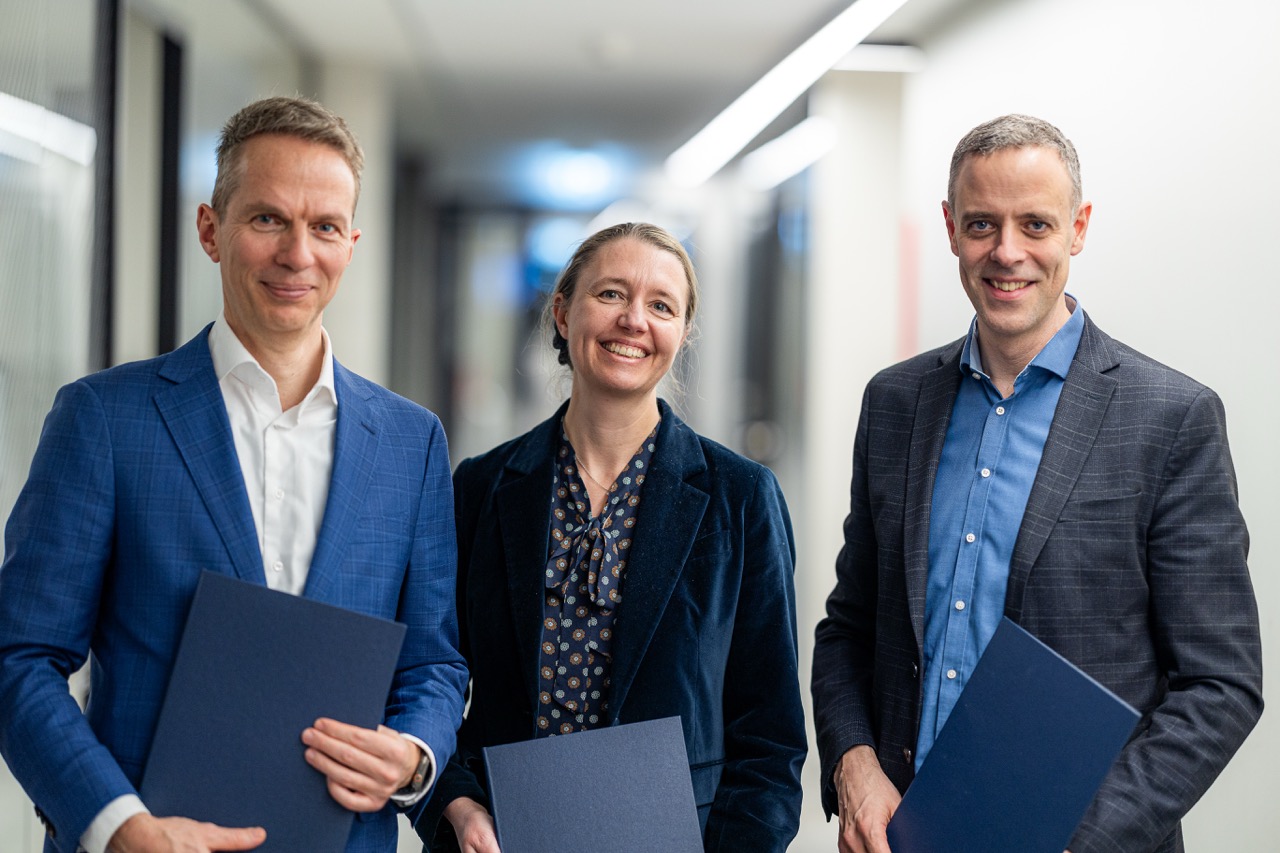
At the final event of the 100-Day Challenges, development teams showcased their achievements and marked the Netherlands’ official entry into the digital partnership.
Digital autonomy in public administration has become a pressing priority. In December 2024, the final event of the Franco-German 100-Day Challenges at the GovTech Campus Berlin marked a key milestone in European collaboration on this issue. The event not only highlighted successful technical developments but also signified a strategic expansion: the Netherlands has joined the existing cooperation framework, transforming the bilateral initiative into a trilateral partnership for digital autonomy.
This initiative builds on the Memorandum of Understanding (MoU) signed in February 2024 by Germany's Federal CIO, Dr Markus Richter, and the head of France's interministerial digital agency (DINUM), Stéphanie Schaer. With the Netherlands on board, this strategic partnership now gains substantial momentum with its pan-European approach to digital independence.
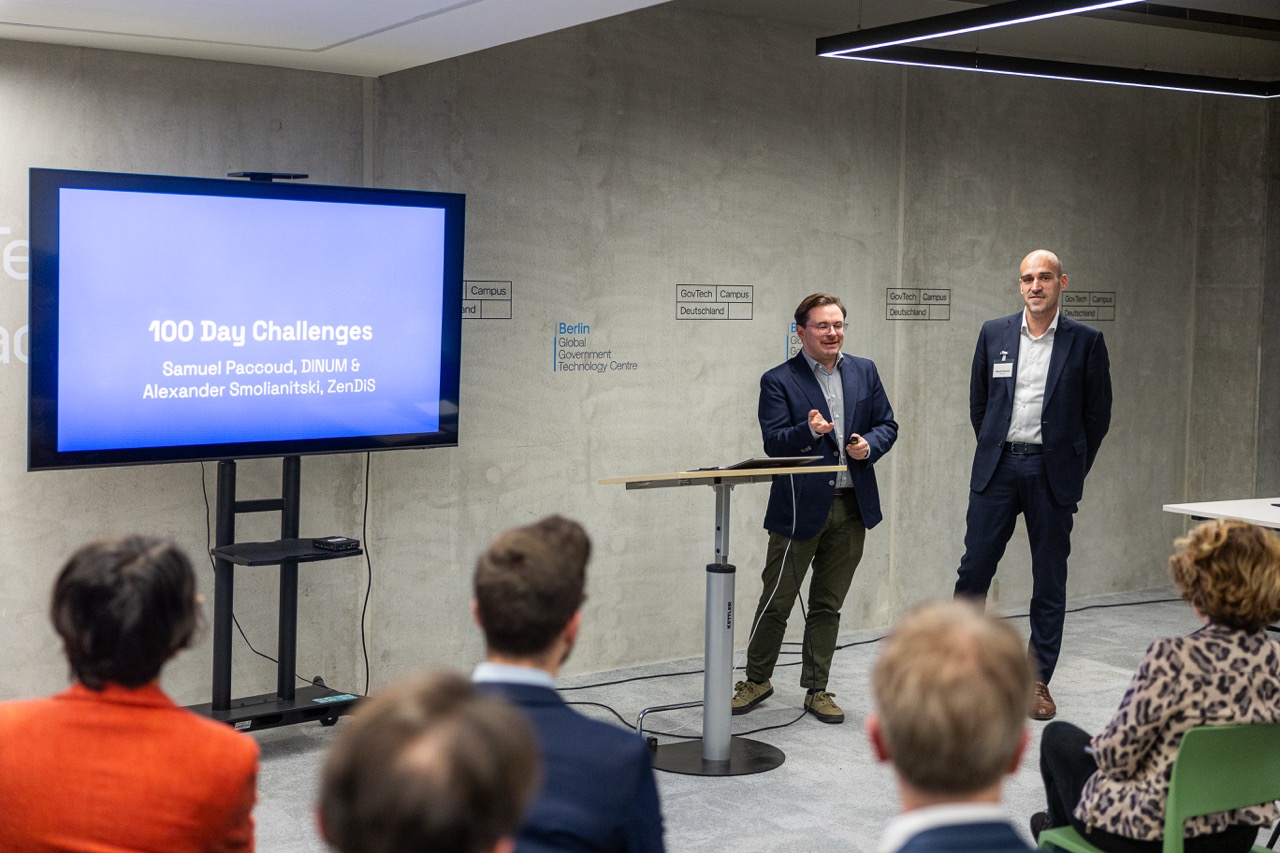
At its core, the initiative follows a pragmatic, agile approach: in short, focused development cycles, concrete open-source solutions are created for immediate use in public administrations. This method deliberately contrasts with lengthy large-scale projects, prioritising quick, visible successes.
The three challenges launched in May 2024 focused on critical areas where sovereign alternatives to proprietary solutions are urgently needed: cross-border authentication, AI-powered collaboration tools, and secure document editing.
Through close cooperation between developers and domain experts from both countries, solutions were developed that meet the high technical demands of public administration.
The three challenge teams presented solutions that directly address key challenges of digital autonomy:
• Cross-border Single Sign-On (SSO): The first team introduced an SSO integration that allows German government employees to log into the French collaboration platform “La Suite” using their existing credentials—eliminating the need for separate accounts while maintaining security standards. The system is designed to scale and accommodate additional European partners in the future.
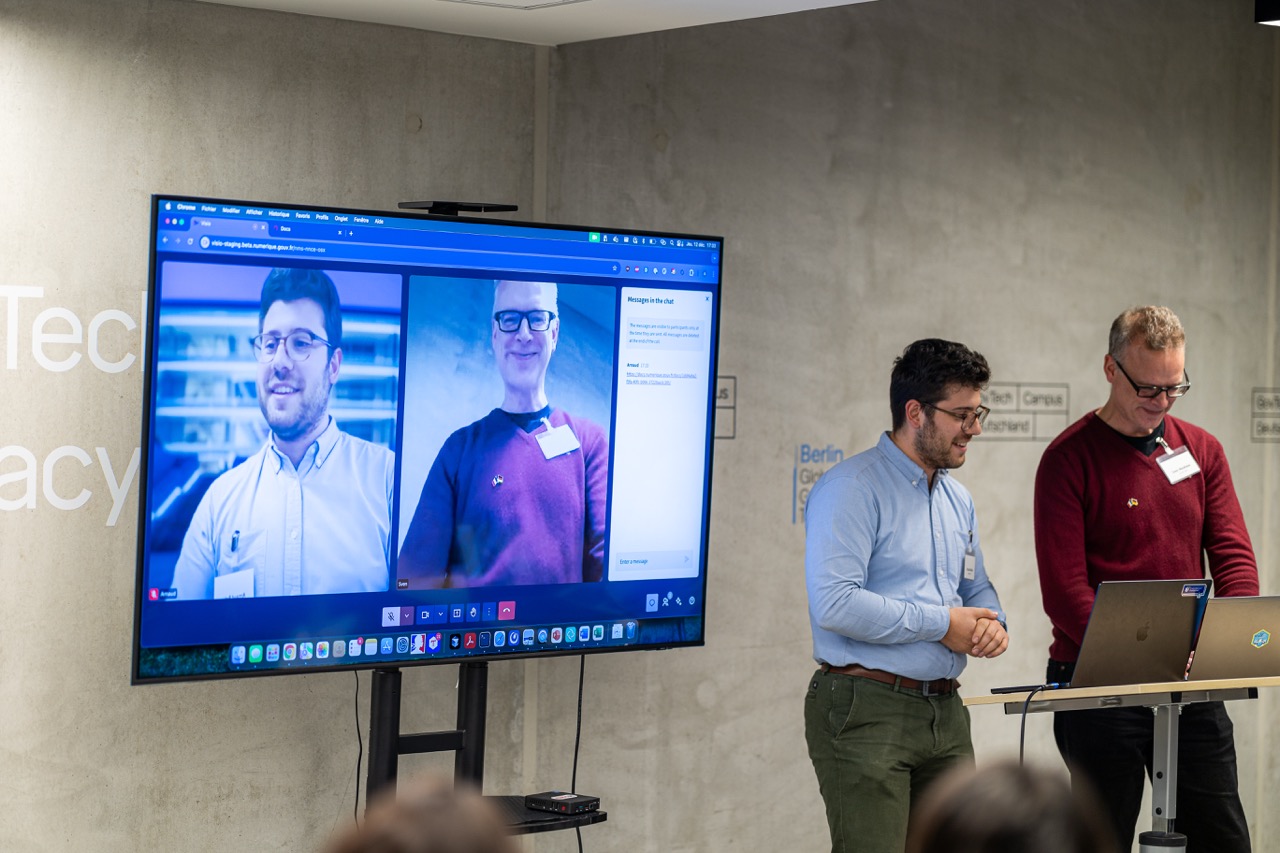
• AI-powered transcription and summarisation: The second project showcased an AI-driven tool for secure video conferencing, which processes sensitive data entirely on local infrastructure—a major advantage over cloud-based solutions from big tech companies. The demo illustrated how this solution saves time in post-meeting documentation.
• Collaborative digital notepad: The third team presented a secure, cross-border collaboration tool with an intuitive interface and full control over data storage. The tool integrates with existing public sector systems and adheres to open standards to ensure long-term interoperability.
All three projects stood out not only for their technical quality but also for their rapid implementation within the 100-day timeframe.
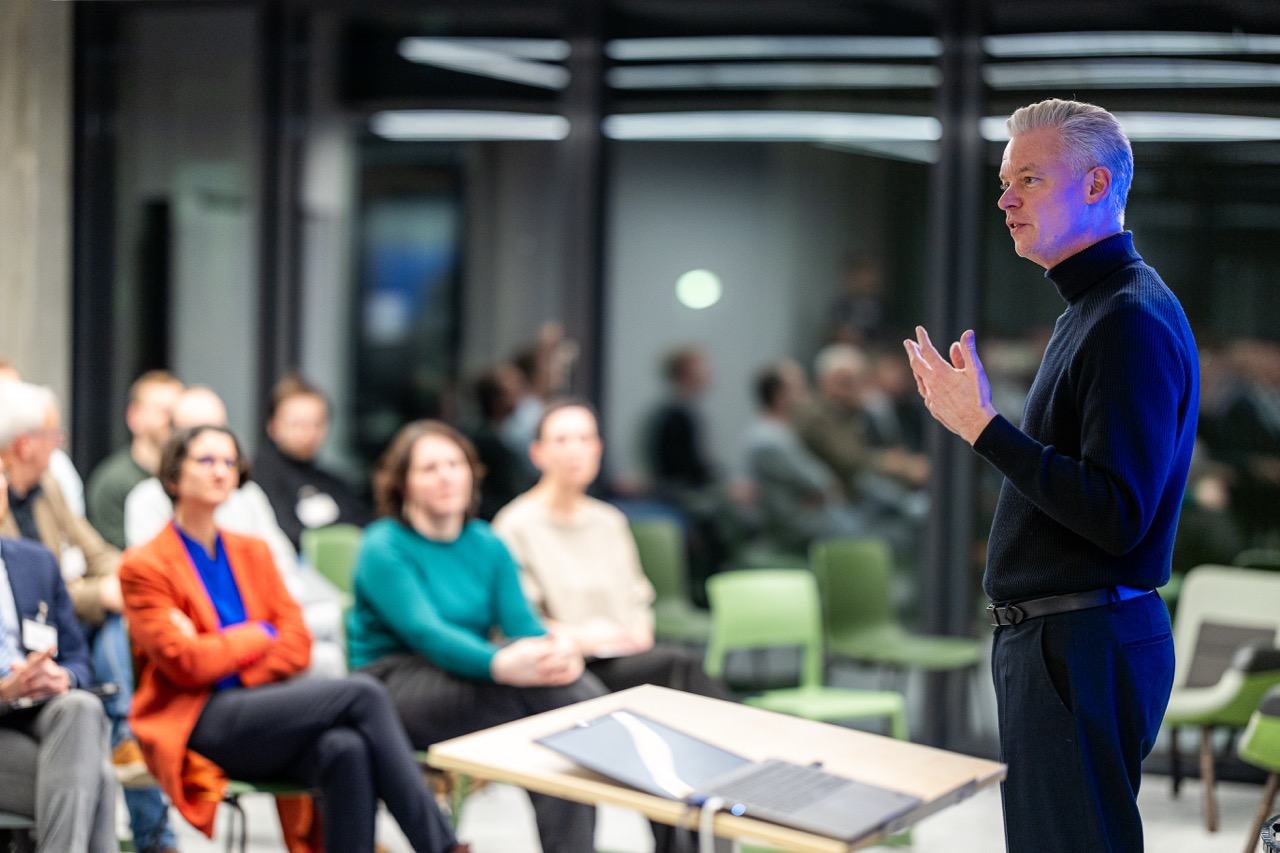
In addition to the technical presentations, two keynote speeches provided insights into the strategic development of digital autonomy at the European and national levels.
EU Commission representatives outlined current plans to support cooperative digital initiatives, recognising projects like the 100-Day Challenges as models for efficient European collaboration. The Commission plans to increase funding for such formats to accelerate Europe’s technological independence.

Germany’s Ministry of the Interior (BMI) presented its roadmap for a sovereign large language model (LLM), specifically designed for federal administration. The AI model will comply with European data protection standards and be optimised for public-sector workflows—ensuring technological independence without new dependencies.
The key takeaway: Digital independence is achieved not through isolation, but through joint development in strategic partnerships for digital autonomy.
The highlight of the event was the signing of a trilateral Memorandum of Understanding, officially welcoming the Netherlands into the Franco-German digital sovereignty initiative.
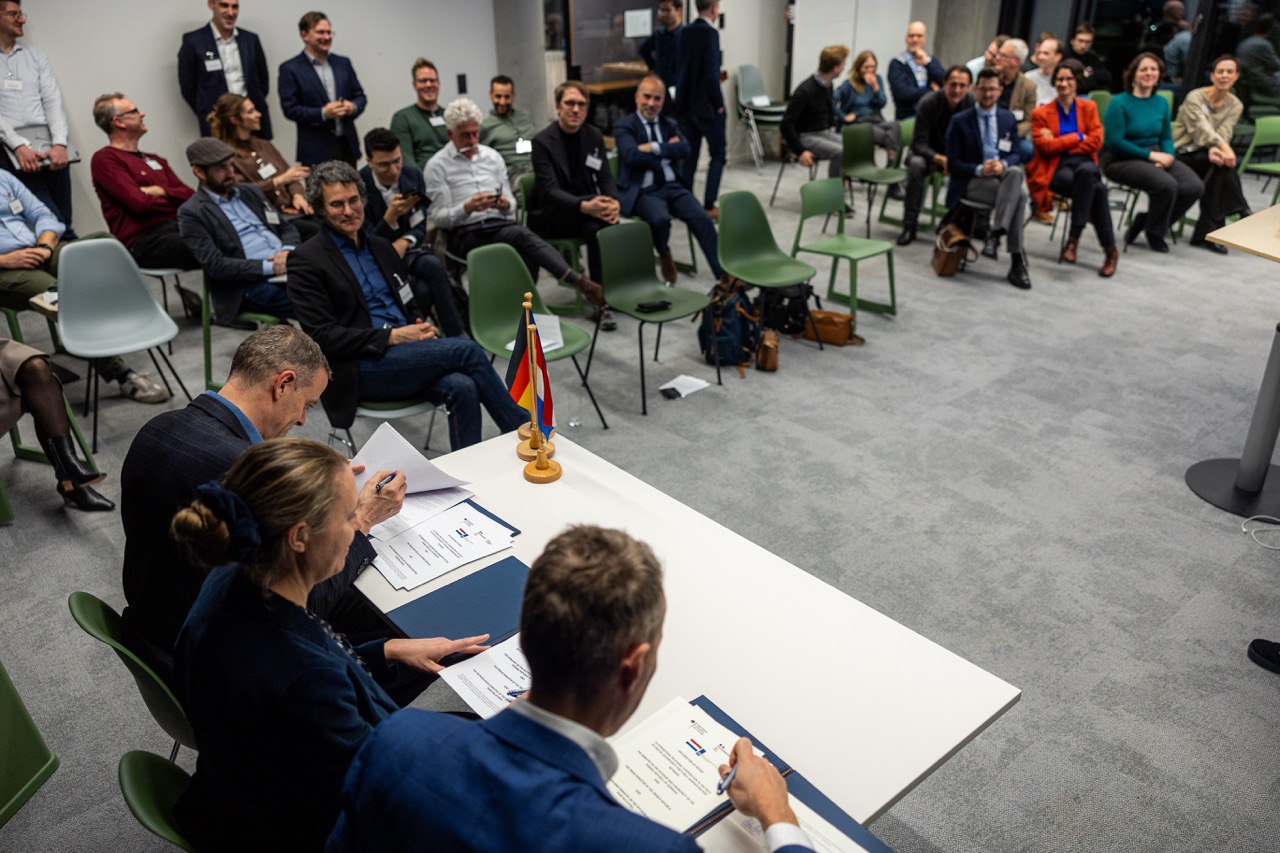
The Dutch delegation praised the efficiency of the 100-Day Challenge model, emphasising the benefits for smaller countries that can pool resources and accelerate innovation through such partnerships.
Paving the way for continued cross-border cooperation, the new agreement expands the Challenge framework to include additional jointly identified focus areas. The first quarter of 2025 has brought the launch of three new challenges, involving development teams from all three countries. The focus is on solutions that streamline cross-border public administration processes and enhance shared digital infrastructures.
By expanding from a bilateral to a trilateral partnership, the initiative gains a good deal of traction and could eventually evolve into a broader European movement for digital autonomy. The signing of the MoU sends a clear message:
Strategic partnerships are the key to strengthening digital autonomy in Europe.
At Europe's largest open source conference, ZenDiS presented its openDesk solution and discussed cross-government collaboration and digital sovereignty with European partners.
ZenDiSDigital sovereignty in Europe is the result of strong international partnerships, not just national solo efforts. One example of this is our cooperation with the French Direction interministérielle du Numérique (DINUM).
ZenDiS